Benjamin Frankel 1906-1973 / under the patronage of the Frankel estate
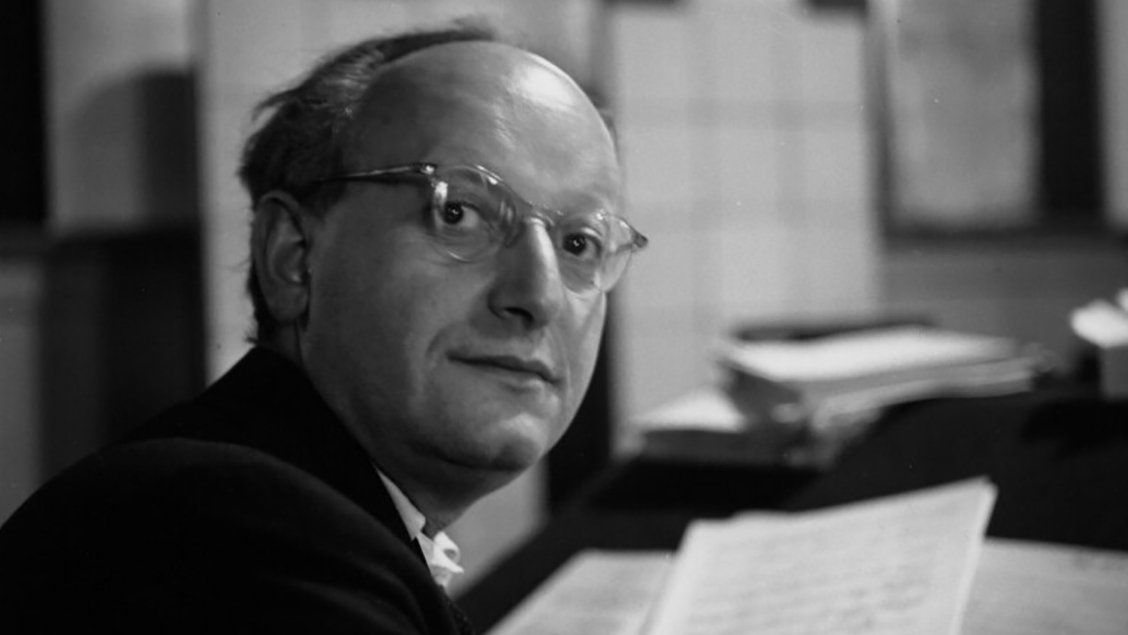
This embodies many salient points but does not begin to hint at the often fascinating and unlikely background to Frankel's life. Consider his parents who, although they had met and married in England, were both immigrants. His father, Charles Frankel, had come from Warsaw, after completing military service in the Czarist army; his mother, Golda Adler, from Tarnopol - a Polish town in the Austro-Hungarian Empire. When Benjamin Frankel was born, Charles was a tobacconist in London's Fulham Road but later abandoned business to take up a humble position in the local synagogue, as a beadle. Golda helped to supplement the family's income by making kosher meals for the Jewish boys at St. Paul's Public School. Like his elder brother, Isidor, and younger sister, Minna, Benjamin proved to be a highly gifted musical child but, while both parents were proud of the fact and encouraged them for recreational purposes, the idea of any of them taking up the 'uncertain' profession of music was out of the question.
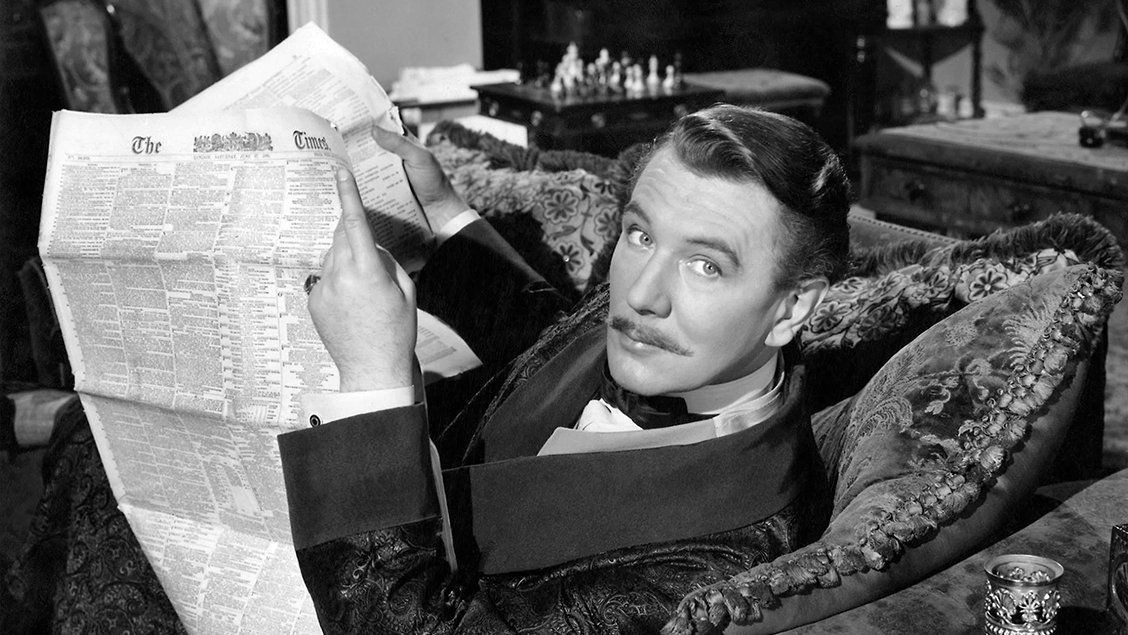
"On-the-job-training" and "steep learning curve" are two phrases of modern parlance that have a special resonance for me, as I look back over the preparation of the material for CPO's recent release "Music for the Movies", devoted to film scores of my late stepfather Benjamin Frankel. As a student at the Royal College of Music, many years ago, I studied piano on the Performer's Course. Sadly, the study of orchestration and composition were not on the curriculum and I recall, with some irony, my consternation when I learned that the second-year theory exam included a paper on the former subject. The problem was solved in the end, not by the introduction of tuition in these areas, but by the discovery that there was an alternative paper which omitted such questions. My knowledge of the orchestra, therefore, (and still requiring much study), is based on listening, studying scores and reading numerous textbooks on the subject.
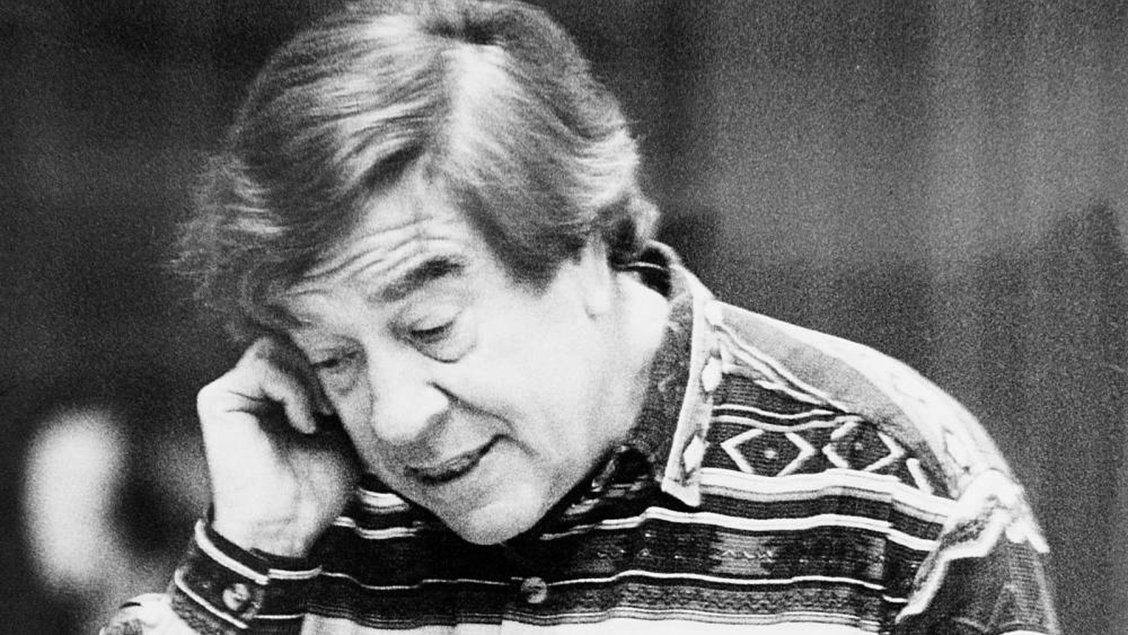
On 12th February 1998, it will be twenty-five years since the British composer Benjamin Frankel died. Even as this anniversary approaches, so, too, does the completion of the recorded cycle of the composer's eight symphonies on the German label CPO. The recordings, which also include the five String Quartets and complete chamber works for and involving clarinet, are, incredibly, the very first of these works, excepting the fifth String Quartet (briefly available on LP during the late sixties) and the Clarinet Quintet, recorded by its dedicatee Thea King with the Britten Quartet, a few years ago, for Hyperion, and, fortunately, still available. Only the seventh and eighth Symphonies have yet to be released (probably during late 1998) and, by the time this appears in print, the premiere recording of the Violin Concerto, Viola Concerto and Serenata Concertante, should be due for imminent release. All things considered, then, this would seem to be a suitable moment to assess Frankel's current standing, and to exa
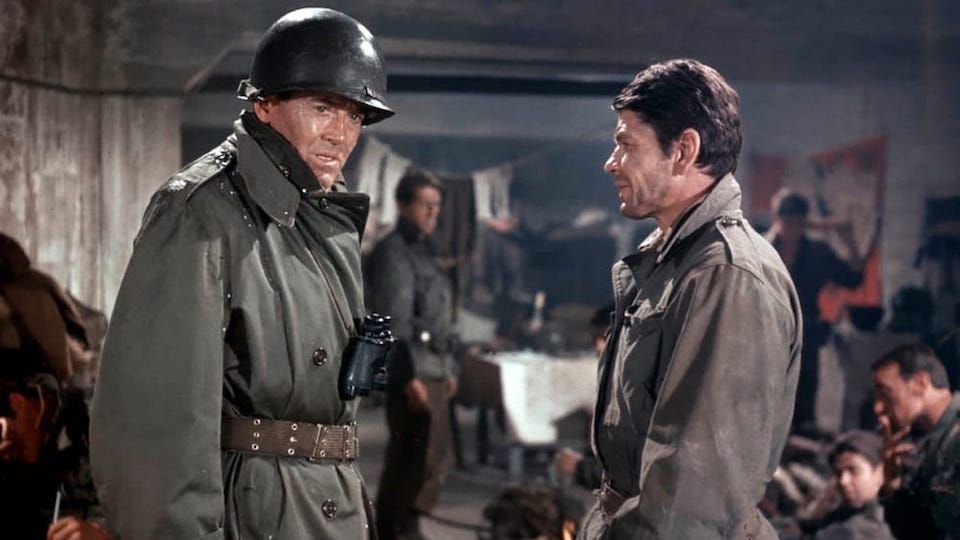
Buxton Orr, one time pupil, colleague and friend of Benjamin Frankel, was actively involved in the conducting and recording of the film track and of the present disc. He is the author of the article on Frankel’s concert music in the current edition of Grove.) A disc of extracts from a film score, cooked up in the last days of the film recording sessions, is bound to be less satisfactory than a properly assembled concert suite, especially as endings tend to be written to fade into the ensuing dramatic action. However, such is the quality of Frankel’s music, and this goes for his entire output of film scores, even when under extreme pressure of time, there was never resort to crude padding and the musical thinking stands up superbly on its own. Further, in this case, there is a special advantage in listening to the disc. As I understood it, Ben’s brief was to support the many war scenes purely by the strength of the musical score.
Works
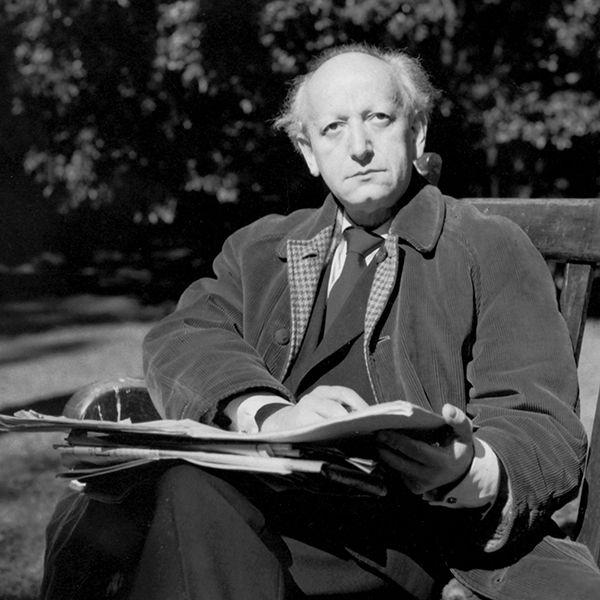
Benjamin Frankel's work for the concert hall gained recognition toward the end of the War, with a string of fine chamber works and, in 1951, the Violin Concerto “In memory of the Six Million” who had perished in the Holocaust. His reputation as a serious composer was later affirmed by a series of eight symphonies and an opera, “Marching Song”, from the play by John Whiting, all composed between 1958 and his death in 1973. His concert music during this period combined a late-romantic quality with the twelve-tone (serial) principles laid down by Arnold Schoenberg and his score for the 1960 film “Curse of the Werewolf” is believed to be the first in Britain have been based on upon them. Reputedly, he was the highest paid British composer of film music, during the 1950s.
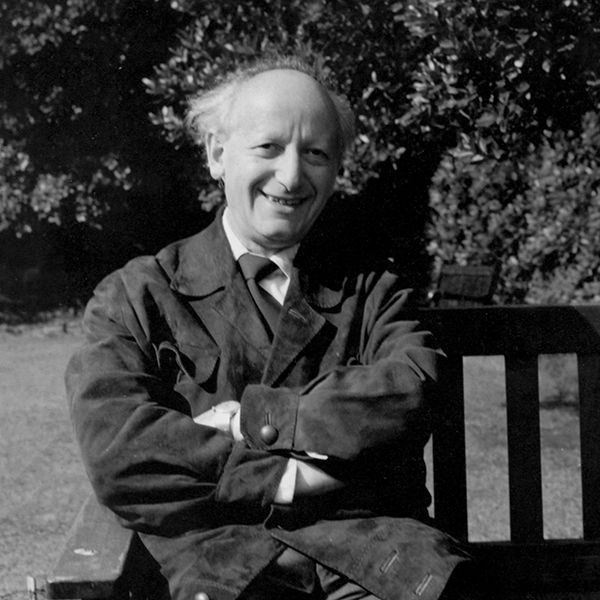
Benjamin Frankel became widely known as a serious composer after World War II; his concert music during this period combined a late-romantic quality with the twelve-tone (serial) principles laid down by Arnold Schoenberg and his score for the 1960 film “Curse of the Werewolf” is believed to be the first in Britain have been based on upon them. Reputedly, he was the highest paid British composer of film music, during the 1950s.
Reviews
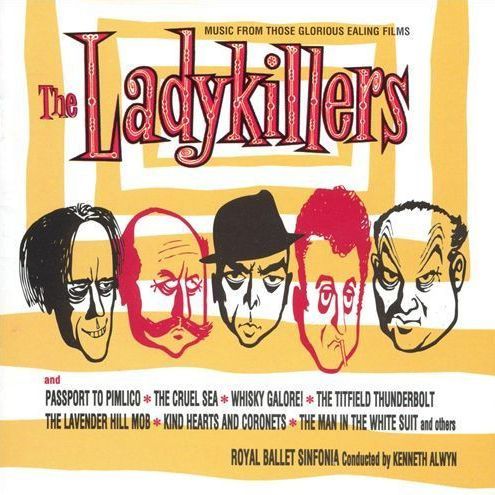
The Ealing comedies, with their controlled anarchy, have long been a treasured part of Britain's cinematic heritage - so much so that the term “Ealing comedy” has almost become generic, synonymous in peoples minds with other British comedies of the period, not actually made by the studio. This CD brings together themes and suites from the best loved and best remembered comedies (and some of their fine dramas), composed by an impressive array of names who were among the most important of their generation, both in the film world and the concert hall.
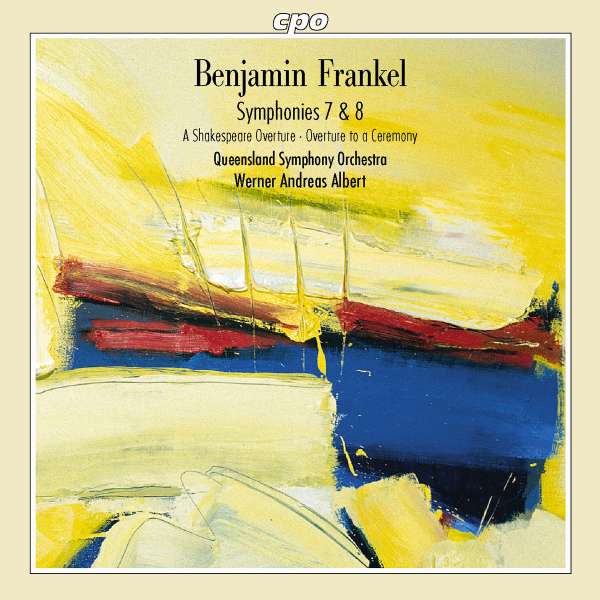
CPO are no shirkers. Their projects evolve slowly but they do happen and they happen with the closest approach to certainty we get in the classical recording marketplace. Their Korngold, Krenek, Milhaud, Pfitzner and Siegfried Wagner cycles are the clearest evidence of their serious intent. Almost surreptitiously, and without fanfare, they have built a catalogue that is as unique as the very style-sheet that proclaims itself from each CPO cover. The process shows no sign of relenting and we can, for instance, look forward to the continuing unrolling of the Atterberg and Macfarren cycles.
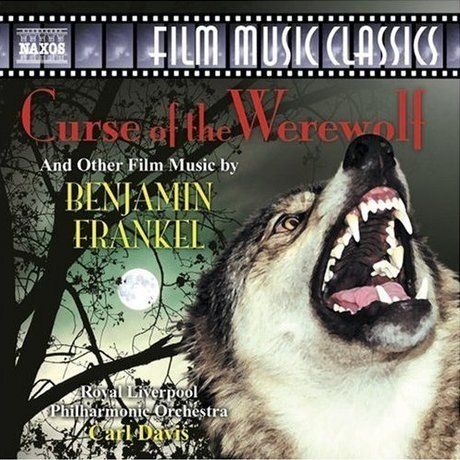
Frankel’s Werewolf (1959) music is some distance removed from the conventional Hollywood horror score. It is more imaginative, has more depth and characterisation. Its wildness, screaming horror and garish colouring are summed up in the ‘Prelude’; its hammering ostinato a tongue-in-cheek play on the Hammer studio nomenclature? A fear-simulated, teeth-chattering opens a calmer cue ‘The Beggar’ which is a very close relative of Frankel’s So Long at the Fair music. ‘Servant Girl and Beggar’ is a conversation piece before cruelty overtakes pathos as the servant girl is raped by the crazed beggar and becomes pregnant with Leon (Oliver Reed) who will be cursed and afflicted with lycanthropy causing him to change into a werewolf at each full moon. ‘Baptism’ is full of foreboding and things that screech and flutter eerily, contrasted with measures of pathos suggesting Leon’s essential loneliness. ‘Pastoral’ is just that -Beethoven-like countryside serenity.
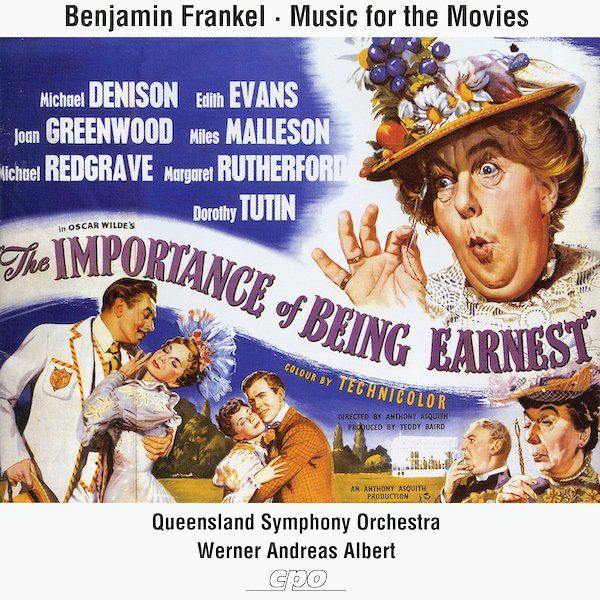
Following 2000's re-recording of Benjamin Frankel's final film score, The Battle of the Bulge (1965), Music for the Movies - The Importance of Being Ernest offers themes and suites from six more films for which the composer penned the music. The forces are the same, Werner Andreas Albert conducting the Queensland Symphony Orchestra, who apart from the previous album have delivered a cycle of Frankel's symphonies as well as various other classical works, and thus can be considered expert in this composer's particular idioms. Let me note right away that the recording is first rate, with every detail coming through with great clarity and the orchestra having a real sense of presence and physical weight in the louder passages, intimacy and detail in the more introspective moments.
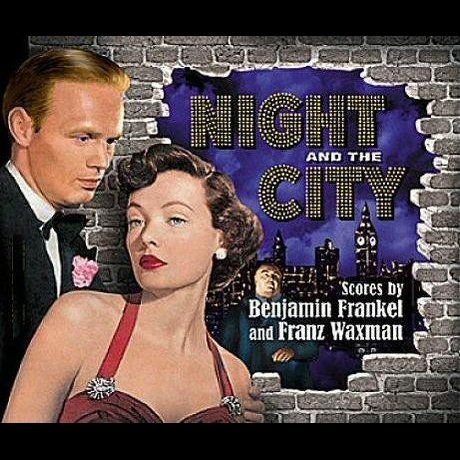
Its quite a common event for a film score to be rejected and a second composer commissioned to pen a replacement score. Rather less common what happened in the case of the Fox produced London set British noir classic, Jules Dassin’s Night and the City (1950). In Britain and British territories the film was issued with a score by Benjamin Frankel, while everywhere else the movie came out with music by Franz Waxman. Today when the film makes one of its occasional appearances on afternoon television in the UK it is ironically with the American score, the original UK version long ago seemingly having dropped out of circulation. *
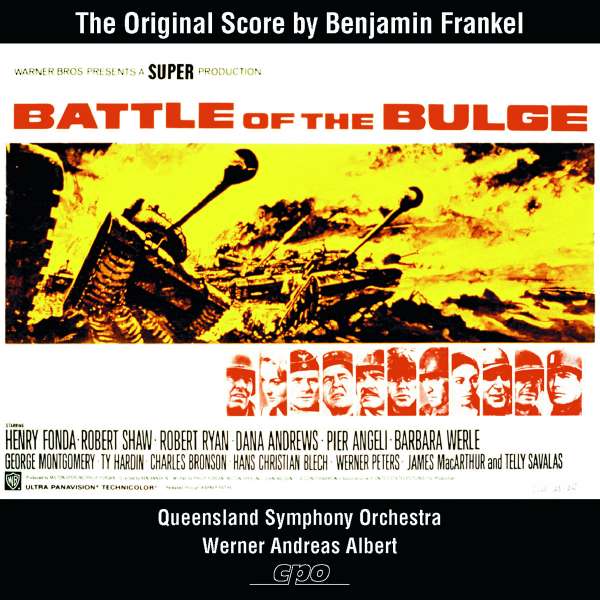
The Battle of the Bulge (1965) is Frankel's last film score. The film is an epic war movie dealing with what was the largest battle of W.W. II in Europe as well as the last German effort to counter the allied forces on their way to Germany. The battle was fought around Christmas 1944 (one of the worst winters of the century) and involved several hundred thousands soldiers on both sides including quite a number of young inexperienced recruits in the German camp, a general characteristic of Germany's ultimate resistance when both young men and elderly people were forced into military service often at the expense of their own lives for little result, if any.




